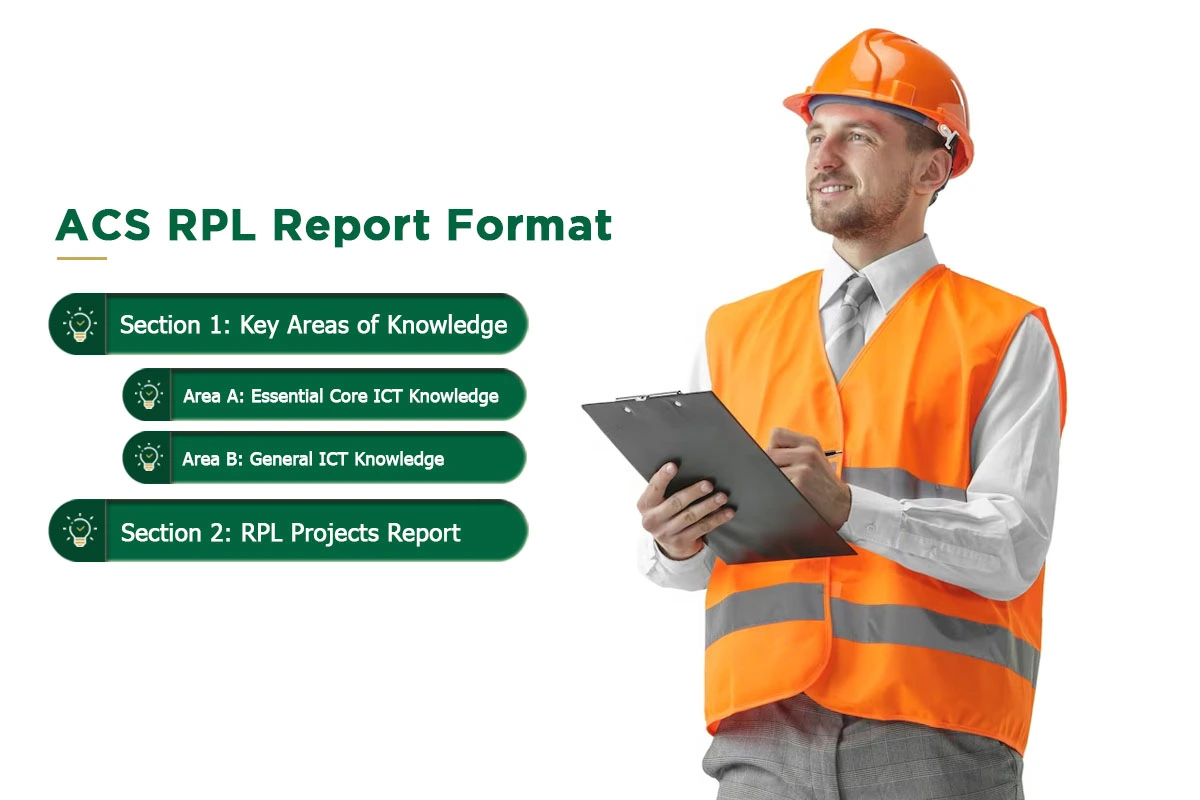

RPL For ACS plays an important role in the assessment framework, providing a way for people without formal ICT qualifications but with relevant skills and experience to demonstrate their capabilities. This guide aims to clarify the details of RPL, assisting those going through the ACS assessment for migration or skills recognition purposes.
RPL, within the ACS context, is a method that enables individuals to highlight the skills and knowledge they have gained through practical work, self-study, or informal education. This recognition of various learning pathways reflects ACS's dedication to acknowledging competency beyond traditional qualifications.
The importance of RPL within ACS is vast. It serves multiple purposes such as recognizing skills, especially for professionals without formal qualifications. For individuals planning to migrate to Australia, RPL plays a crucial role in meeting the ACS skill assessment requirements. Additionally, it provides opportunities for career growth, allowing professionals to showcase their abilities and opening doors to higher-level positions.
The ACS Skills Assessment is a significant process conducted by the Australian Computer Society (ACS) to evaluate individuals' qualifications and work experience in the Information and Communication Technology (ICT) industry. It serves as a pivotal step for those who wish to migrate to Australia or seek formal recognition of their skills in the Australian job market.
The ACS Skills Assessment is incredibly important for several reasons. Firstly, it acts as a benchmark to evaluate the qualifications and abilities of ICT professionals, making sure they meet a standard level of expertise in the field. It is also a requirement for certain skilled migration visas, giving formal recognition to individuals looking to relocate to Australia and work in the ICT industry. Even for professionals already in Australia, employers often ask for the ACS Skills Assessment to verify the qualifications and skills of potential employees.
To be eligible for the ACS Skills Assessment, candidates must fulfill the following conditions:
Educational Qualifications: Hold a recognized ICT qualification or, if formal credentials are absent, consider the RPL for the ACS pathway
Work Experience: Demonstrate significant and applicable work experience within the ICT sector, highlighting responsibilities and accomplishments.
English Language Proficiency: Display fluency in English by obtaining a satisfactory score in recognized language tests like IELTS.
Relevance of Qualifications to ICT: Ensure that academic qualifications directly align with the ICT field, meeting the knowledge and skill requirements.
Skill Assessment Application: Submit a comprehensive application, which includes a resume, academic transcripts, reference letters, and any requested documents, following ACS guidelines.
To get ready for the Recognition of Prior Learning (RPL) process with the Australian Computer Society (ACS), it's essential to take a methodical approach. Start by identifying your ICT skills and knowledge and evaluating your past work experiences in the ICT sector. Then, map these skills to the ACS core areas.
Next, create a detailed work experience statement highlighting your roles, responsibilities, and achievements. Make sure to present any relevant projects as well. After that, it's time to craft the ACS RPL Project Report. This report should emphasize the structure, format, and evidence of your ICT skills through project examples.
When writing your RPL For ACS documents, it helps to use effective language and writing techniques. Aim for a relaxed tone, use an active voice, and keep your language concise. Don't forget to rigorously proofread and edit your documents before submitting them. This will ensure clarity and coherence in your RPL materials.
Once you have completed your RPL documents for assessment by the Australian Computer Society (ACS), it is important to carefully review the entire submission. This ensures that your RPL documents are complete and coherent, which is crucial for a successful assessment.
To upload your well-prepared RPL documents, simply navigate to the ACS online portal. Follow the guidelines provided by the portal to ensure a smooth and hassle-free submission process.
After submitting your documents, you will need to follow the designated payment procedures for the assessment fees. Take some time to familiarize yourself with the accepted payment methods to ensure you complete this essential part of the application process correctly.
After you submit your application, it's important to understand what happens next. The timelines for the ACS assessment can vary, so be prepared for a waiting period as your application undergoes evaluation.
The ACS assessment process can take different amounts of time. Factors like the volume of applications and assessment complexity can affect the duration of the assessment.
During the ACS evaluation, there can be different outcomes. Your assessment may result in a positive confirmation of your ICT skills, or you may receive feedback on areas that need improvement.
After receiving the assessment outcome, be proactive in understanding your next steps. Depending on the result, you might need to address feedback or move forward with subsequent migration or career planning stages.
In conclusion, navigating the submission process involves meticulous review, adept use of the online portal, and adherence to payment procedures. Post-submission, understanding assessment timelines, potential outcomes, and subsequent steps is key to a smooth RPL application experience with the ACS.